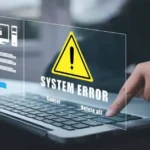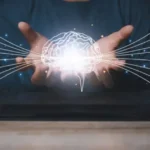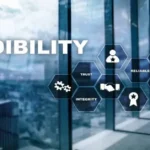The real estate industry, once dominated by printed flyers and “for sale” signs on front lawns, has rapidly evolved alongside advancements in technology. Today’s real estate professionals rely on digital marketing tools and online platforms to connect with prospective buyers and sellers. This merging of traditional real estate practices with innovative digital strategies is often referred to as a “brick-and-click” approach.
Leveraging Digital Marketing for Lead Generation
One of the most significant impacts of digital marketing on real estate has been the ability to generate leads online. While agents once had to wait for referrals or cold calls to find new clients, they can now use digital strategies to actively attract buyers and sellers.
Search engine optimization (SEO), pay-per-click ads (PPC), and social media marketing can all be leveraged to drive traffic to an agent’s website or listings. Optimizing content for relevant keywords helps pages rank higher in search results, while paid ads put listings directly in front of motivated searchers. Social platforms like Facebook and Instagram, with their advanced targeting options, provide additional lead gen opportunities through promoted posts and ads.
Email marketing is another important digital strategy for agents. Collecting email addresses through website forms allows agents to build a subscriber list to nurture with valuable, relevant content. Email nurturing campaigns keep the agent top of mind until subscribers are ready to buy or sell.
Virtual Tours and Online Listings
Digital marketing provides new avenues for showcasing property listings beyond the traditional MLS. Real estate websites like Zillow and Trulia offer expanded listing reach, while sites like Opendoor give home sellers the option of an instant offer.
Agents can also create virtual tours using 360-degree photography and video. These tours allow buyers to explore homes online before scheduling visits. According to the National Association of Realtors (NAR), the number of buyers who toured homes virtually before purchasing doubled from 2020 to 2021.
Automating Administrative Tasks
From scheduling to paperwork, digital solutions help agents save time on administrative tasks. Customer relationship management (CRM) software centralizes lead and client information while automating follow-ups and reminders. Electronic signature programs like DocuSign streamline contracts and disclosures by eliminating paper.
Some brokerages even utilize artificial intelligence for added efficiency. Chatbots can qualify leads through conversational surveys on websites. AI can also help analyze data to refine marketing and pricing strategies.
Omnichannel Communication
Today’s real estate consumers expect seamless communication across multiple channels. Integrated platforms like Facebook Business Manager simplify omnichannel marketing.
Agents can engage audiences simultaneously on Facebook, Instagram, and Messenger while tracking interactions. Bulk texting services provide another omnichannel touchpoint with immediate open rates.
Blockchain and Cryptocurrency
Blockchain technology is positioned to disrupt real estate transactions. A distributed ledger transparently records each step of the buying/selling process. This enhanced security gives buyers, sellers, and agents confidence that records can’t be altered.
Some agents also accept cryptocurrency as payment. While not yet in the mainstream, cryptocurrency offers an alternative payment option for tech-savvy clients.
Emphasizing the Human Element
While technology opens new possibilities, the real estate agent’s role as a trusted advisor remains critical. No algorithm can replace human insight and emotional intelligence.
The most effective real estate professionals blend digital marketing and automation with active listening, consultative guidance, and local expertise. They embrace technology as a tool for enhancing — not replacing — the client relationship.
Conclusion
The brick-and-click model brings out the best of both worlds: digital efficiency and the human touch. As technology continues to evolve, agents must stay nimble, combining innovation with genuine customer service. The future of real estate lies at the intersection of bricks and clicks.
Author’s Bio:
Maggie Lyster is a freelance writer who covers topics related to digital marketing, real estate, and entertainment. When she’s not writing, Maggie enjoys trying his hand at blackjack online and other casino games. Her articles aim to help professionals understand how digital strategies are reshaping traditional industries.











